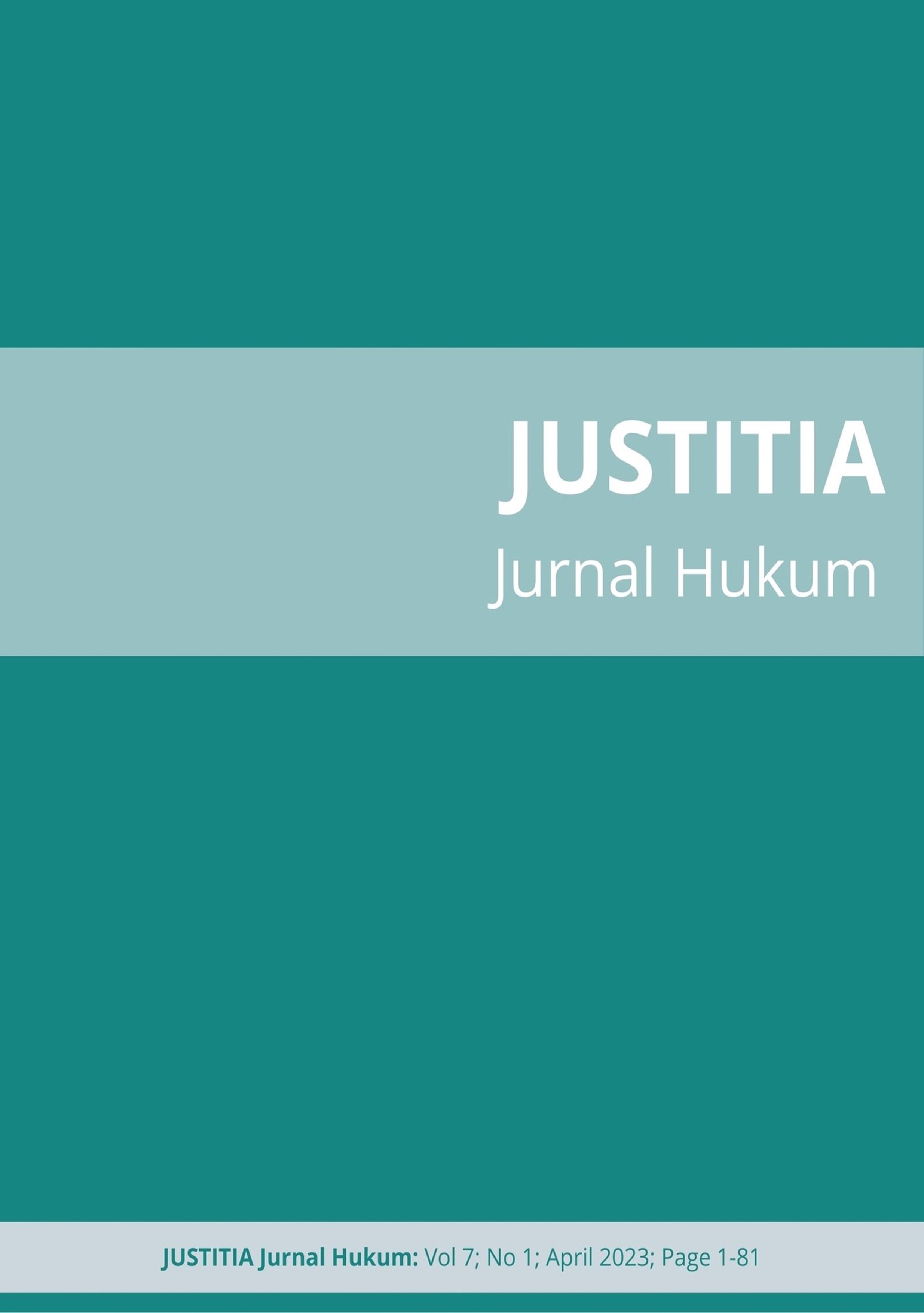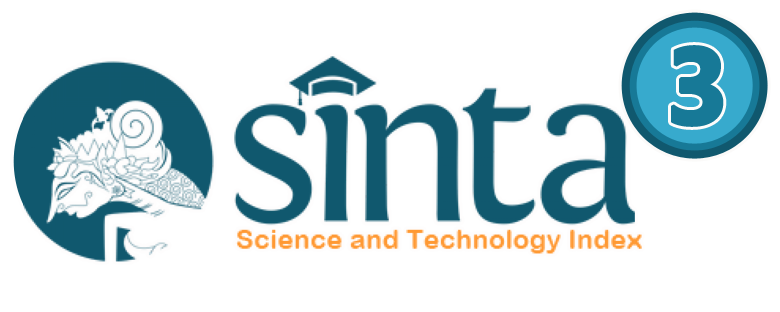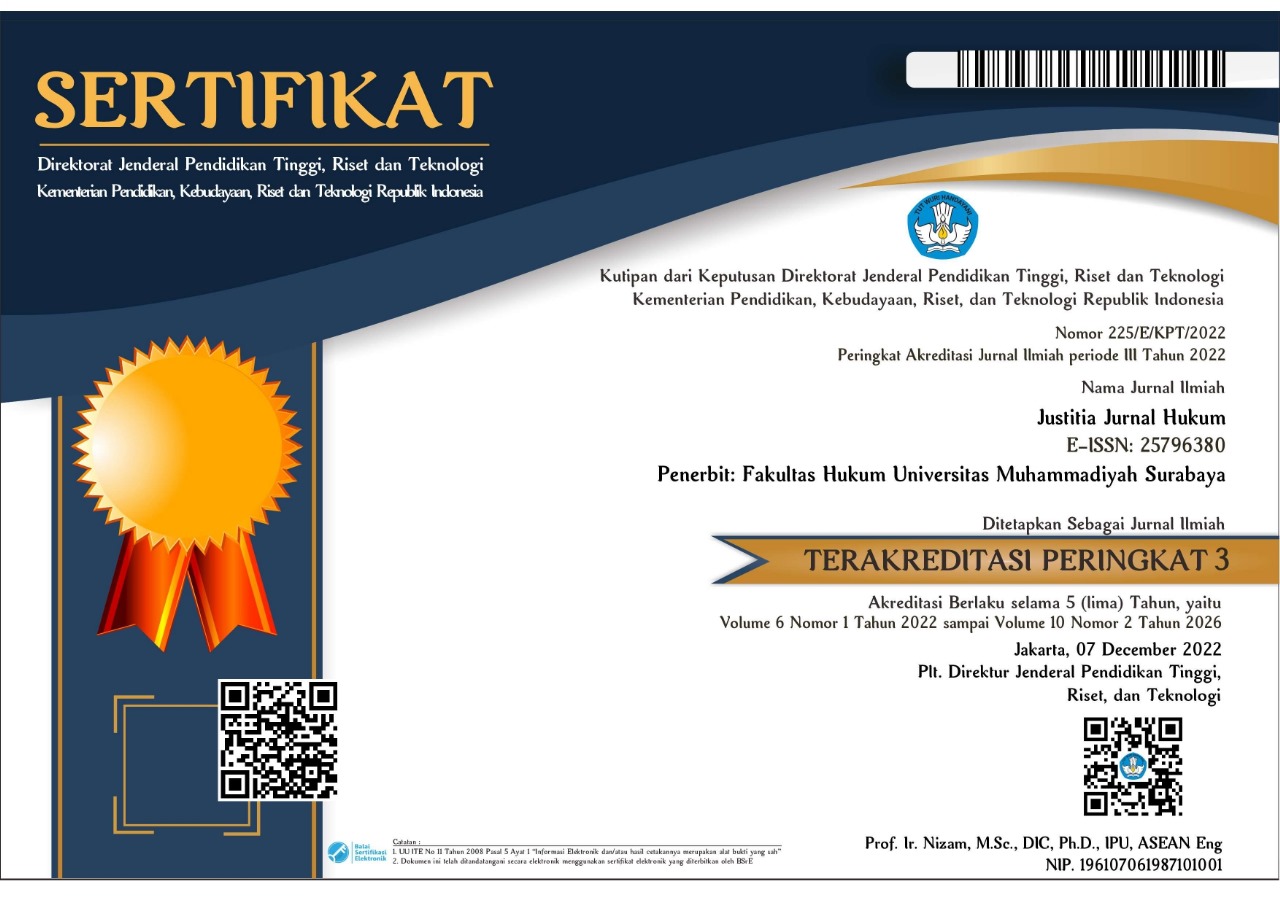The Making of Law Non-Participatory and Its Impact on Democracy
DOI:
https://doi.org/10.30651/justitia.v7i1.17565Abstract
The formation of laws in Indonesia today, both formally and materially, is still prone to deviations (controversy) by not involving public participation and not being open. This will result in problems in the form of legislative corruption, buying and selling articles, law products with weak legitimacy to Judicial Review. Public participation in the process of forming laws is an important element, because laws that are formed in a participatory manner are in line with democratic rule of law and meet the legal needs of society. Democracy. The focus of the study and analysis carried out in this research is related to the formation of an omnibus law (Cipta Kerja) which is considered undemocratic so that it poses a danger (legal consequences) and various responses from the community ranging from community rejection, students to workers who hold demonstrations. (demo) in various regions, then the submission of a judicial review at the constitutional court, then the inclusion of bills that are not important into the national legislation program and the existence of corruption in legislation in the law-making stage. This research is a normative legal research that aims to find solutions to legal issues and problems that arise in Indonesia in it, so that the results to be achieved then provide a prescription on what should be on the issues raised. The approach used is the law approach and the concept approach. The results of this study show that the process of forming the Omnibus law (Cipta Kerja) is full of interests, in this case the Government, DPR to Entrepreneurs so that it is not transparent (closed) and the lack of public participation which results in violations of democratic values and the constitution.
Keywords: Formation of Laws; Not Participatory; Democracy.
References
Akbar, C. (2021). Aturan Yang Menjadi Sorotan di Aturan Turunan UU Cipta Kerja: Ada soal PHK dan Upah. http://www.nasional.tempo.co/ 2021.
Asshiddiqie, J. (2010). Perihal Undang-Undang. Raja Grafindo Persada.
Ashiddiqie, J. (2020). Ideologi, Pancasila dan Konstitusi. Writing published by the Constitutional Court of the Republic of Indonesia. www.mkri.id
Astomo, P. (2018). Ilmu Perundang-Undangan Teori dan Praktik di Indonesia. Raja Grafindo Persada.
Ball, Alan & Peters, Guy. (2005). Modern Politics and Government. Macmillan: Palgrave.
Chandranegara, I S. (2016). Penuangan Checks and Balances ke dalam konstitusi. Journal of the Constitution, (13)3, 552-274.
Fahmi, K. (2011). Pemilihan Umum dan Kedaulatan Rakyat. PT Raja Grafindo.
Hidayati, Siti. (2019). Partisipasi Masyarakat Dalam Pembentukan Undang-Undang, Jurnal Bina Mulia Hukum, 3 (2), 225-241.
Kartikasari, Esty & Agus Machfud Fauzi. (2021). Penolakan Masyarakat Terhadap Pengesahan Omnibus Law Cipta Kerja dalam Perspektif Sosiologi Hukum, Doktrina: Journal of Law, 4 (1), 39-52. https://doi.org/10.31289/doktrina.v4i1.4482
Kartika, S D. (2020). Politik Hukum RUU Cipta Kerja, Kajian Singkat Terhadap Isu Aktual dan Strategis. Info Singkat, 12(4), 1-6.
Korslak, D. (2014). The concept of legal state. Vestnik Omskogo Universiteta, 41(4), 121-130.
Marzuki, PM . (2005). Penelitian Hukum. Jakarta:Kencana Prenada Media Group.
Marzuki, PM (2008). Pengantar ilmu hukum. Kencana.
Maulana S, Sony. (2005). Power Versus Pragmatism: Menggagas Pembahasan RUU dengan Argumentasi Berdasar Fakta dan Logika. Jurnal Hukum Jentera, 10 (3).
Nurhasan, (2022). Partisipasi publik yang bermakna. https://kumparan.com/srining- widati/partisipasi-publik-yang-bermakna 1xZXt0sQg6R/full.
PSHK, (2022). Bahaya Undang-Undang Omnibus Law. https://koran.tempo.co/read/opini/448362/bahaya-omnibus-law-terhadap demokrasi.
Putra, A. (2020). Penerapan Omnibus Law dalam Upaya Reformasi Regulasi, Indonesian Legislation Journal. Center for Indonesian Law and Policy Studies (PSHK), 17(1), 1- 10.
Putra, Andi Irman. (2008). Peran Prolegnas Dalam Perencanaan Pembentukan Hukum Nasional Berdasarkan UUD 1945 (Pasca Amandemen), Jakarta: Badan Pembinaan Hukum Nasional.
Putusan, 91/PUU-XVIII/MKRI (2020)
Purwadi, Hari. (2010). Memahami Hukum dari Konstruksi Sampai Implementasi. Jakarta: Rajawali Press.
Rahardjo, S. (2006). Hukum Dalam Jagat Ketertiban. UKI press.
Rahmasari, B. (2016). Mekanisme dan Dasar Keberlakuan Legal Drafting di Indonesia. Legal Journal, 13(1), 71-87.
Ramadhan, A. (2019) 26 Poin dari UU KPK Hasil Revisi yang Berisiko Melemahkan KPK, http: //www.kompas.com/nasional/2019.
Ramadhan, Fahmi. (2021). Mewujudkan Pembentukan Undang-Undang yang Partisipatif, Edisi Pertama. Banyumas: Amerta Media.
Republika. (2021). RUU Pengampunan Pajak dan Revisi UU KPK Masuk Prolegnas Prioritas,http://www.republika.co.id/berita/nasional/politik/15/12/15/nzea0u354-ruu-pengampunan-pajak-dan-revisi-uu-kpk-masuk-prolegnas-prioritas-2015,
Redi, A. (2018). Hukum Pembentukan Peraturan Perundang-Undangan. Sinar grafika.
Riwanto, Agus. (2016). Strategi politik hukum meningkatkan kualitas kinerja DPR Dalam Produktivitas Legislasi Nasional, Jurnal Cita Hukum, Fakultas Syariah dan Hukum UIN Jakarta, 4(2), 267-286. http://doi.org/10.15408/jch.v4i2.4140.2016.4.2.267-286.
Safa'at, MA. (2020). UU yang Demokratis. Pembentukan-uu-yang demokratis. https://www.kompas.id/baca/opini/ 2020/10/17/
Saifuddin, (2009). Proses Pembentukan UU: Studi Tentang Partisipasi Masyarakat dalam Proses Pembentukan UU. Jurnal Hukum, 16, 95-119.
Sanusi, Arsyad. (2009). “Relasi antara Korupsi dan Kekuasaanâ€, Jurnal Konstitusi, 6(2), 83-104.
Saraswati, L G. & Basari, T. (2006). Hak Asasi Manusia Teori, Hukum. Philosophy UI Press.
Seta, Salahudin Tunjung. (2020). Hak Masyarakat Dalam Pembentukan Peraturan Perundang-Undangan, Jurnal Legislasi Indonesia, 17 (2). 154-166.
Sholikhin, M. Nur. (2022). 3 Cara Mendesain Ulang Prolegnas agar Lebih Efektif https://theconversation.com/3-cara-mendesain-ulang-prolegnas-agar-lebih efektif128005.
Sodikin. (2020). Paradigma Undang-Undang dengan Konsep Omnibus Law Berkaitan dengan Norma Hukum yang Berlaku di Indonesia. Jurnal RechtVinding, 9(1), 143-159.
Soebagyo, Firman. (2022). Implikasi Putusan Uji Formil UU Cipta Kerja terhadap Reformasi Regulasi, https://pshk.or.id/dokumen/8356.
UU Pembentukan Peraturan Perundang-Undangan, (2011). https://jdih.bumn.go.id/lihat/UU%20Nomor%2012%20Tahun%202011
UU Tentang Perubahan UU Pembentukan Peraturan Perundang-Undangan, (2019). https://jdih.bumn.go.id/lihat/UU%20Nomor%2015%20Tahun%202019
UUCiptaKerja,(2020).https://jdih.bumn.go.id/lihat/UU%20Nomor%2011%20Tahun%202020
Downloads
Published
How to Cite
Issue
Section
License











